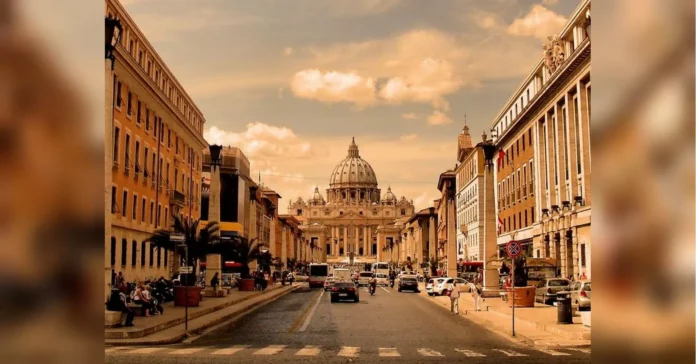Rome, the capital city of Italy, has recently been named the new anti-racist capital of the country. This is a significant milestone for the city, which has a rich history and cultural heritage. The decision to bestow this title upon Rome was made by the Italian government in an effort to promote inclusivity and combat discrimination.
The term «anti-racist capital» may seem like a bold statement, but it is a well-deserved title for Rome. The city has long been a melting pot of different cultures and ethnicities, and has a long history of welcoming people from all over the world. This diversity is reflected in the city’s architecture, cuisine, and customs, making it a truly unique and vibrant place.
In recent years, there has been a rise in racist incidents and hate crimes across Italy, prompting the government to take action. One of the steps taken was to designate a city as the anti-racist capital, with the aim of promoting tolerance and acceptance. Rome was the natural choice for this title, given its long-standing commitment to diversity and its efforts to combat discrimination.
The announcement was met with great enthusiasm and pride by the citizens of Rome. Mayor Virginia Raggi expressed her gratitude for the recognition, stating that it is a testament to the city’s values and efforts towards creating a more inclusive society. She also stressed the importance of continuing to work towards eradicating racism and discrimination in all forms.
Rome has a long history of standing up against discrimination and promoting equality. In 1948, the city hosted the signing of the Universal Declaration of Human Rights, which set the foundation for human rights protection around the world. More recently, the city has taken steps to address issues of discrimination and promote diversity, such as implementing anti-discrimination policies in the workplace and providing support for refugees and migrants.
The anti-racist capital title is not just a symbolic gesture, but also comes with tangible benefits for the city. It serves as an incentive for businesses and organizations to promote diversity and inclusion in their practices, creating a more welcoming environment for all. It also boosts tourism, as visitors are drawn to cities that promote inclusivity and diversity.
The designation of Rome as the anti-racist capital also serves as a reminder of the importance of standing up against discrimination and promoting unity. In a world where hate and intolerance seem to be on the rise, this title sends a powerful message of hope and unity. It shows that a city, or any community, can come together and reject discrimination in all its forms.
Furthermore, this title serves as an inspiration for other cities and countries to follow suit. It shows that with determination and a strong commitment to inclusivity, any city can become an anti-racist capital. It is a call to action for all to do their part in creating a more equal and accepting world.
In conclusion, the designation of Rome as the anti-racist capital of Italy is a well-deserved recognition for a city that has long been a symbol of diversity and acceptance. It serves as a reminder of the importance of promoting inclusivity and standing up against discrimination. Rome has set an example for others to follow, and it is a beacon of hope for a more united and tolerant world.

